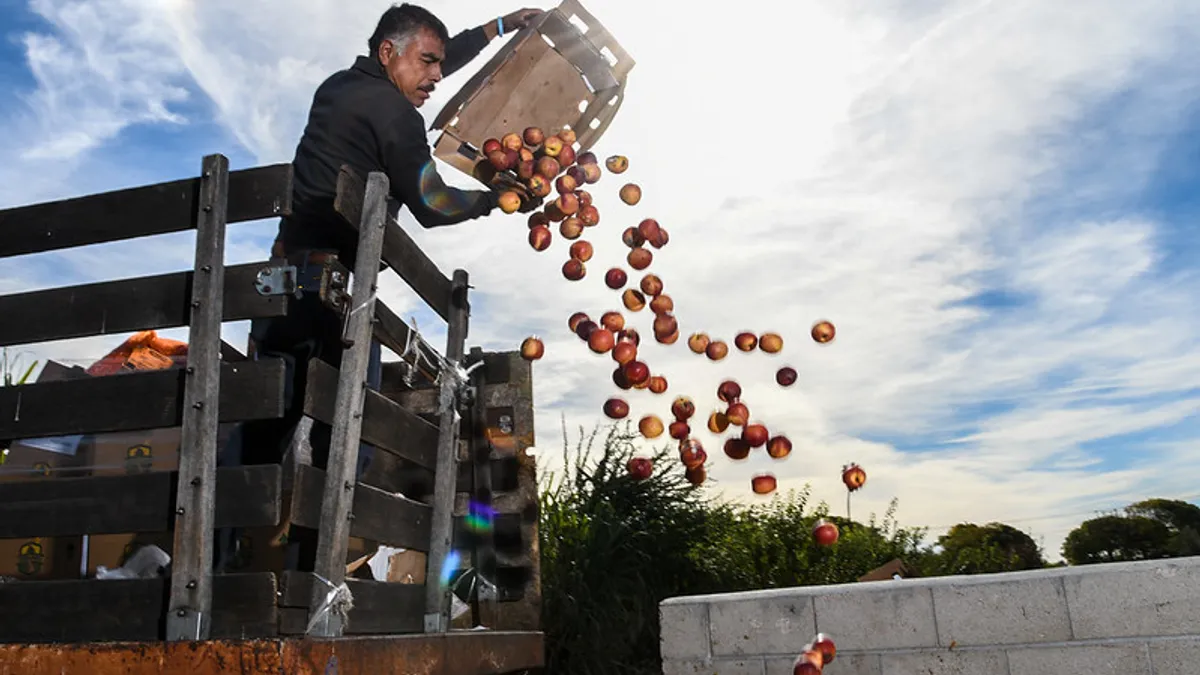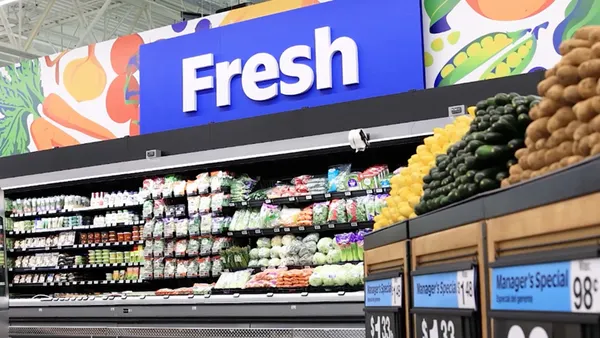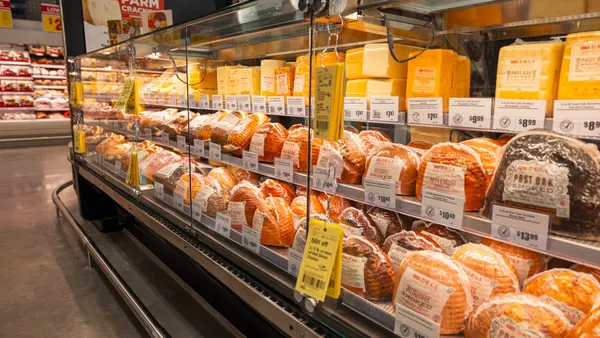Jennifer Molidor is a senior food campaigner at the Center for Biological Diversity.
The volume of food wasted in America is so large that it’s hard to comprehend: Around 30% to 40% of the food produced in the United States is trashed. That’s enough to fill a 90,000-seat college stadium every single day.
But now several of the world’s largest grocers are working with their suppliers to prevent waste before food hits the shelves. Although food waste happens at every stage of the supply chain from farm to fork, grocery stores could play a huge, positive role because they often act as the gatekeeper between those who grow the food and those who would eat it.
By looking upstream to cut grocery food waste, the “10x20x30” initiative aims to have its 10 participating food retailers and suppliers significantly reduce their food loss and waste by 2030. Nearly 200 suppliers have signed onto this effort, which will not only help the environment, but also increase efficiency, reduce costs and build resiliency in the supply chain.
It’s a model that should be embraced by the entire grocery industry.
As part of the 10x20x30 initiative, each of the world’s 10 largest food retailers will require 20 of their major suppliers to halve food waste from the supply chain by 2030. Among those retailers are Kroger and Walmart, as well as Ahold Delhaize, Ikea Food, Tesco and Sodexo. Suppliers will track and publish food waste inventories and take action to reduce their waste.
An initiative like this could lay the foundation for real commitments to fighting food waste — especially for companies that have done little to address the problem. For example, Costco, Publix and Trader Joe’s each scored a “D” in the Center for Biological Diversity’s industry analysis in 2019, which ranked food waste reduction commitments, transparency and waste prevention.
Among the 10 largest U.S. supermarkets, Kroger, Walmart and Ahold Delhaize USA — all three of which signed on to the new 10x20x30 commitment — have publicly committed to zero food waste by 2025. But most American grocers are not even tracking and publicly reporting their total volume of wasted food.
Eliminating food waste in the grocery sector is a crucial step toward mitigating the unsustainable impacts of our food system on water, air, climate and wildlife. We have a real problem with our food system when roughly one-third of the food produced is wasted while 13.7 million U.S. households were food insecure last year, according to the U.S. Department of Agriculture.
Most supermarkets focus on donating food waste instead of preventing it, but donating food waste doesn’t address the inequities that underlie the problems of food insecurity. And it doesn’t address the environmental harms the industrial food system disproportionately causes to frontline workers and communities through proximity to toxic pesticides and pollution. Overproducing food only worsens these injustices.
The 10x20x30 initiative is a positive step in the right direction. But if we’re going to make meaningful reductions to food waste and feed the planet, all of America’s largest grocery chains need to adopt a similar model.













